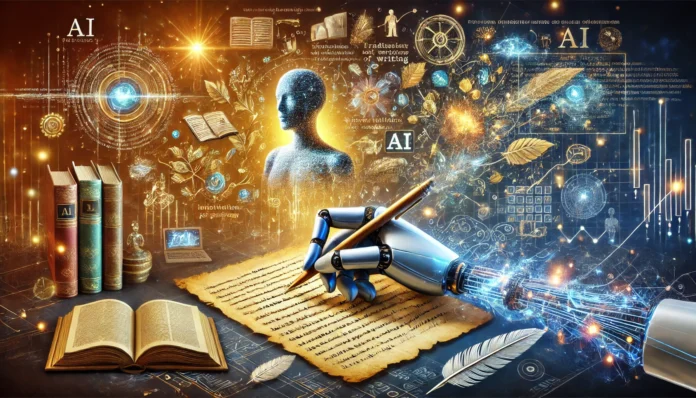Artificial Intelligence (AI) is revolutionizing academic research, making tasks like literature reviews, data analysis, and writing more efficient. For PhD students and researchers working on theses and dissertations, AI-powered tools help streamline the research process, saving time and improving the quality of their work.
1. AI for Literature Review and Data Collection
One of the most time-consuming aspects of research is gathering and reviewing relevant literature. AI-powered tools can simplify this process by scanning vast databases and summarizing key insights.
- Semantic Scholar, Scite, and Elicit use AI to find the most relevant research papers based on keywords and citations.
- Connected Papers and Research Rabbit visually map out related studies, helping researchers see how different works connect.
- ChatGPT and Claude AI summarize long research papers, extracting essential points and trends.
With AI, researchers can quickly access the latest developments in their field without spending hours manually searching through journals.
2. AI-Powered Writing Assistance
Writing a dissertation or thesis requires clarity, structure, and coherence. AI tools help refine academic writing by improving grammar, structure, and readability.
- Grammarly and QuillBot offer advanced grammar correction, paraphrasing, and clarity suggestions.
- Zotero and Mendeley assist with citation management, ensuring references are correctly formatted in APA, MLA, or Chicago style.
- ChatGPT and Jasper AI help structure complex arguments and generate drafts based on research inputs.
AI can also identify inconsistencies in writing, helping researchers maintain logical flow and academic rigor.
3. AI for Data Analysis and Visualization
Many PhD researchers rely on data-driven insights for their work. AI tools can process large datasets, detect patterns, and generate visual representations.
- SPSS, MATLAB, and R with AI-powered plugins help analyze statistical data efficiently.
- IBM Watson and Google AutoML offer AI-powered data modeling and machine learning analysis.
- Tableau and Power BI generate AI-driven visualizations, making complex data easier to interpret.
These tools reduce the workload associated with manual data analysis, allowing researchers to focus on interpretation rather than computation.
4. AI in Plagiarism Detection and Ethical Research
Maintaining academic integrity is crucial. AI-powered plagiarism detection tools ensure originality and adherence to ethical research practices.
- Turnitin and Copyscape detect similarities in research work and flag potential plagiarism.
- AI-based text comparison tools help ensure proper citation and originality in writing.
- AI-driven bias detection tools identify potential biases in research methodologies and data interpretation.
By using AI, researchers can produce ethically sound and credible work while avoiding unintentional errors.
5. AI in Idea Generation and Problem Solving
AI doesn’t just assist with execution—it can also spark new research ideas and help solve complex problems.
- AI-powered brainstorming tools like ChatGPT or Bing AI generate hypotheses and research questions.
- DeepMind’s AlphaFold has revolutionized biological research by predicting protein structures, aiding scientists in groundbreaking discoveries.
- AI in simulations and modeling helps researchers test theories in various fields, from physics to social sciences.
These AI-driven insights push the boundaries of research, leading to faster and more innovative discoveries.
6. AI in Time Management and Productivity
Research is a long and demanding process. AI tools help researchers stay organized and manage their time effectively.
- Notion AI and Evernote assist in organizing research notes, references, and ideas.
- AI-powered scheduling tools like Motion and Trello help researchers track deadlines and manage tasks efficiently.
- Voice-to-text AI tools like Otter.ai and Descript convert spoken thoughts into written text, making it easier to capture ideas on the go.
By optimizing workflows, AI enables researchers to focus more on critical thinking rather than administrative tasks.
The Future of AI in Research
AI is reshaping the landscape of academic research, making complex tasks faster, more efficient, and more accurate. While it cannot replace human creativity and critical thinking, it serves as a powerful assistant, helping researchers navigate the overwhelming volume of information and streamline their work.
As AI continues to evolve, future research could see even more advanced AI-driven discovery systems, real-time research collaboration with AI assistants, and automated hypothesis testing. The fusion of AI and academia is set to redefine knowledge creation, making high-quality research more accessible to scholars worldwide.





